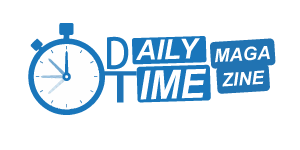To pursue your goals needs dedication and hard effort, but it all starts with a capital. If you’re a doctor, lawyer, Chartered Accountant, self-employed business owner, etc., a commercial loan can help you meet your objectives. Even a business loan for women encourages them to show their attributes in every profession. Anyone can now take their professional ambitions to the next level with that support.
Loans can be used for anything a business needs, such as purchasing assets, purchasing supplies, meeting daily operations expenditures, paying payroll, so on. The business must state the purpose of the loan during the loan application process.
Below are some pointers that explain the general process of the whole loan methodology works:
Pre-approval Process
The financier will start the pre-approval procedure for the business by examining the company’s financial record and revenue. In addition, the lender will look into the business’s existing debt and the loan’s objective. The lender can get a reasonable estimate of how much money the company can borrow and how risky the borrower is by using a pre-qualifying process.
Loan Application
The company must fill up and submit a loan application following the pre-qualification process. Financial statements or equivalent papers from the previous three years are usually needed in the application. It is to ensure that the company can pay back the commercial loan.
Loan Application Assessment
The financial analysis is an essential aspect of the due diligence process. A loan officer will review these due diligence materials after applying. They’ll look into items like the business’s credit record, available security, present and projected revenue, and so on.
Loan Committee Evaluation
A comprehensive and official credit application is presented to a credit adjudicator or lending committee if the commercial loan request is judged appropriate by the loan officer. The adjudicator considers all relevant information before deciding whether or not to authorize the loan. The evaluation can take up to a week, and the committee may ask the company to supply further paperwork.
Term Document
The processor will supply the company with a term sheet if it is accepted. A term sheet is a formal document that specifies the parties involved, funding, the available collateral, fees, the loan’s use, and interest rate. Payment for third-party reports, including appraisal reports, may be required after reviewing the term sheet and signing a letter of intent.
Final Documents
The entire loan application file is resubmitted to the loan reviewer for final approval after the third-party reports are completed. A closing agent is typically hired by businesses to handle all final documents and complete any outstanding paperwork. The company must sign the finalized loan agreements if the loan is granted.
After the approval of a loan, you can have the following benefits:
Funds for investments
A commercial loan is a type of loan that allows a company to get more funds. With that money, you could buy new equipment, buy a new business, pay off debts, and so on.
Convenient application process
Although the application process for a business loan may appear intimidating, it is far less complicated than raising funds through the equity or debt markets. Raising money through the equity or bond markets comes with regulatory barriers and considerable expenses and time.
Keeping possession
A commercial loan does not diminish the property of a business owner. A company might, for example, issue stock to raise funds. The owner would be reducing their equity in the company by doing so. As a result, a loan allows a business owner to acquire funds without diminishing their ownership position.
One more vital point to check related to commercial loans is understanding the procedure of applying the interest rate:
Today’s loans are based on the terms of the Marginal Cost-based Lending Rate (MCLR) and Repo Rate-based Lending Rate (RRLR), which are reset regularly based on the economy rate. Interest rates on commercial business loans might vary depending on the lender’s risk assessment and other regulatory requirements. In addition, the loan agreement specifies loan processing fees, legal expenses, late payment fees, and other expenditures.
Many factors also determine loan interest rates, including the lending institution, the security offered, the company’s turnover, profitability, cash flows, and the borrower’s creditworthiness. Loans are available for startups, MSME, small businesses, and other types of companies.
Once you understand the loan process, you can handle it smoothly. It will open the door to several opportunities for you. Especially if you are a woman, you will have the freedom of investment through a business loan for women. Nobody can stop you just because you are not financially independent.
The gist of this article is that if you understand the loan market, you can have utilized it in your favor, but there can be a harsh consequence in the opposite case. Pay attention & be alert in the whole loan procedure.


































